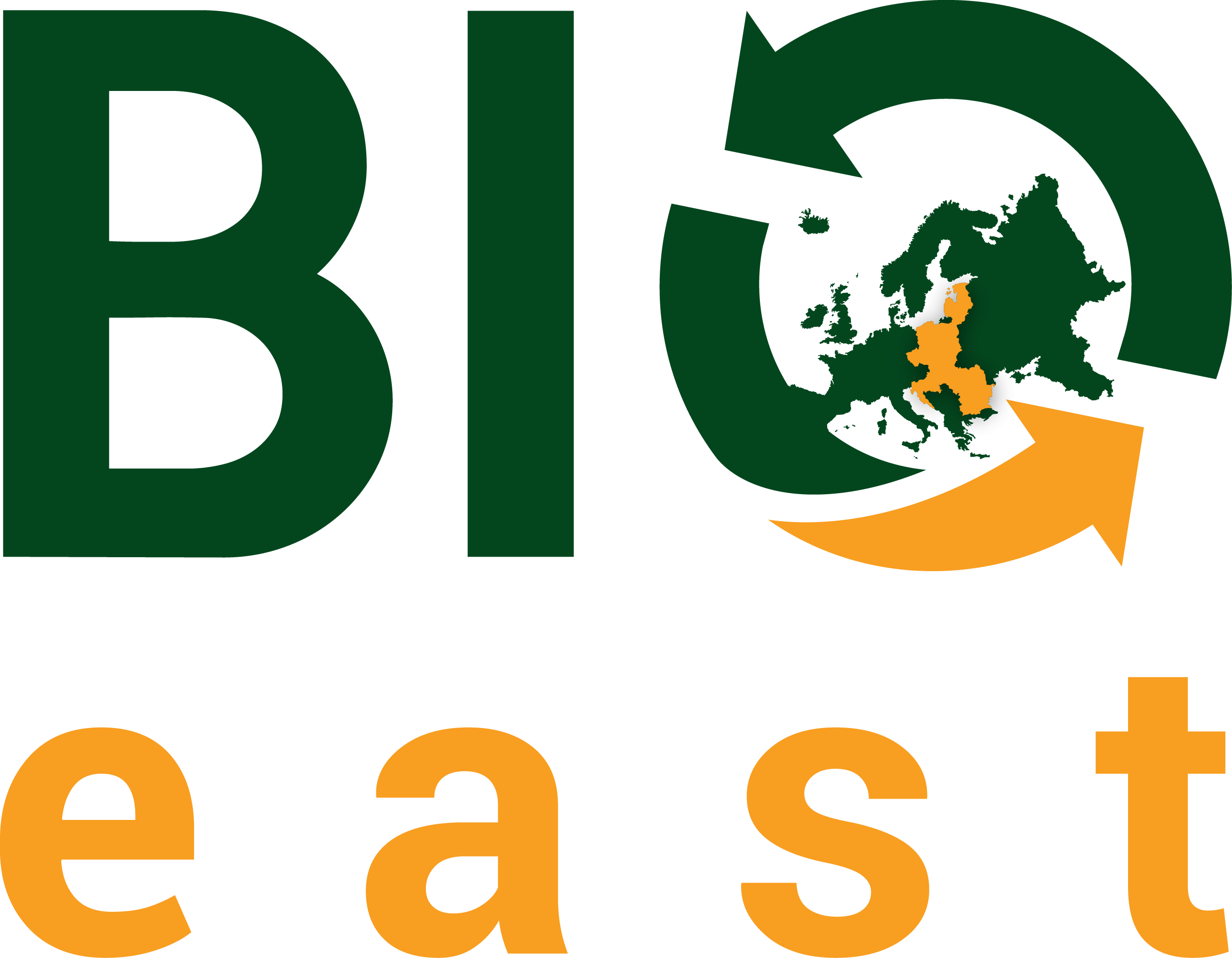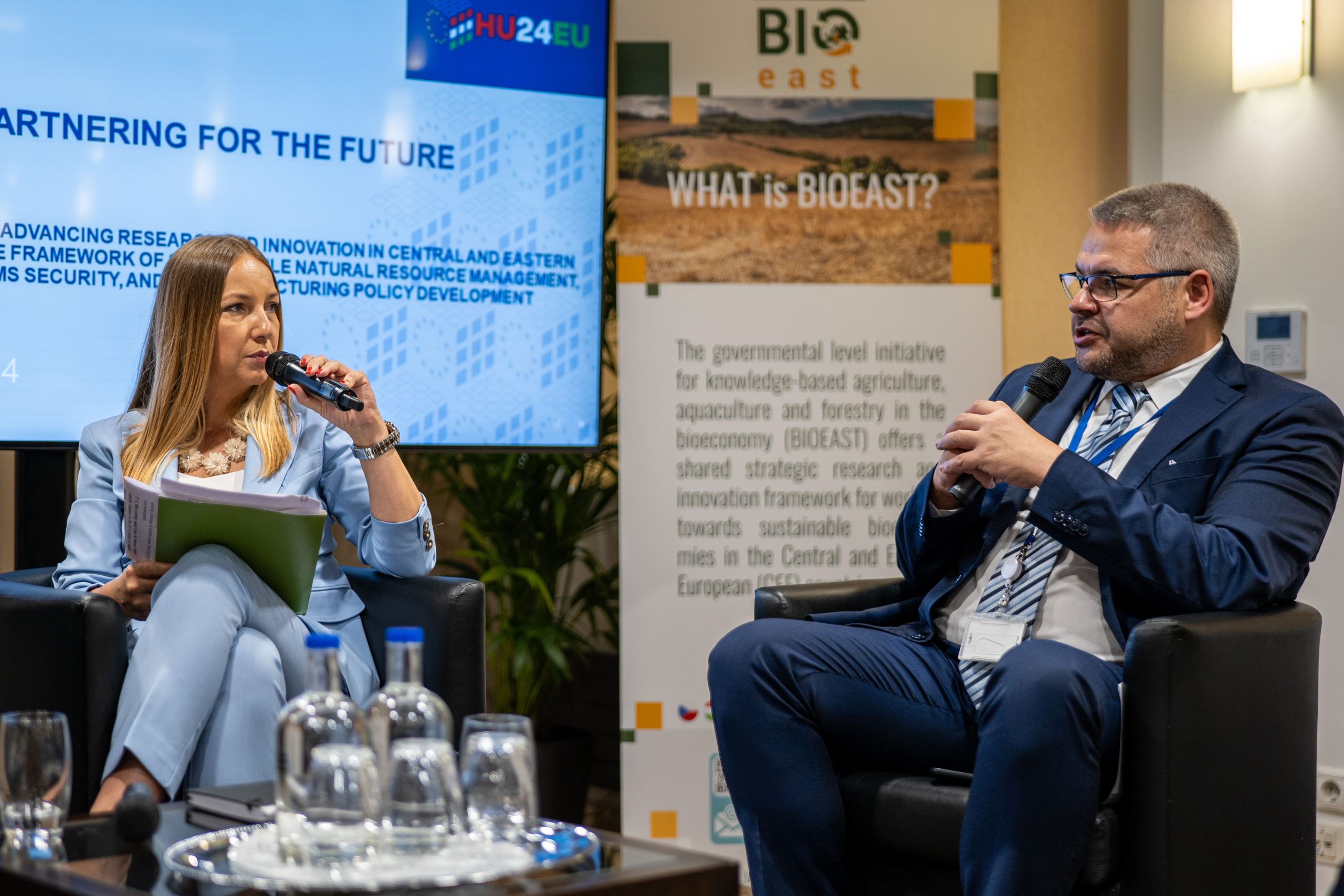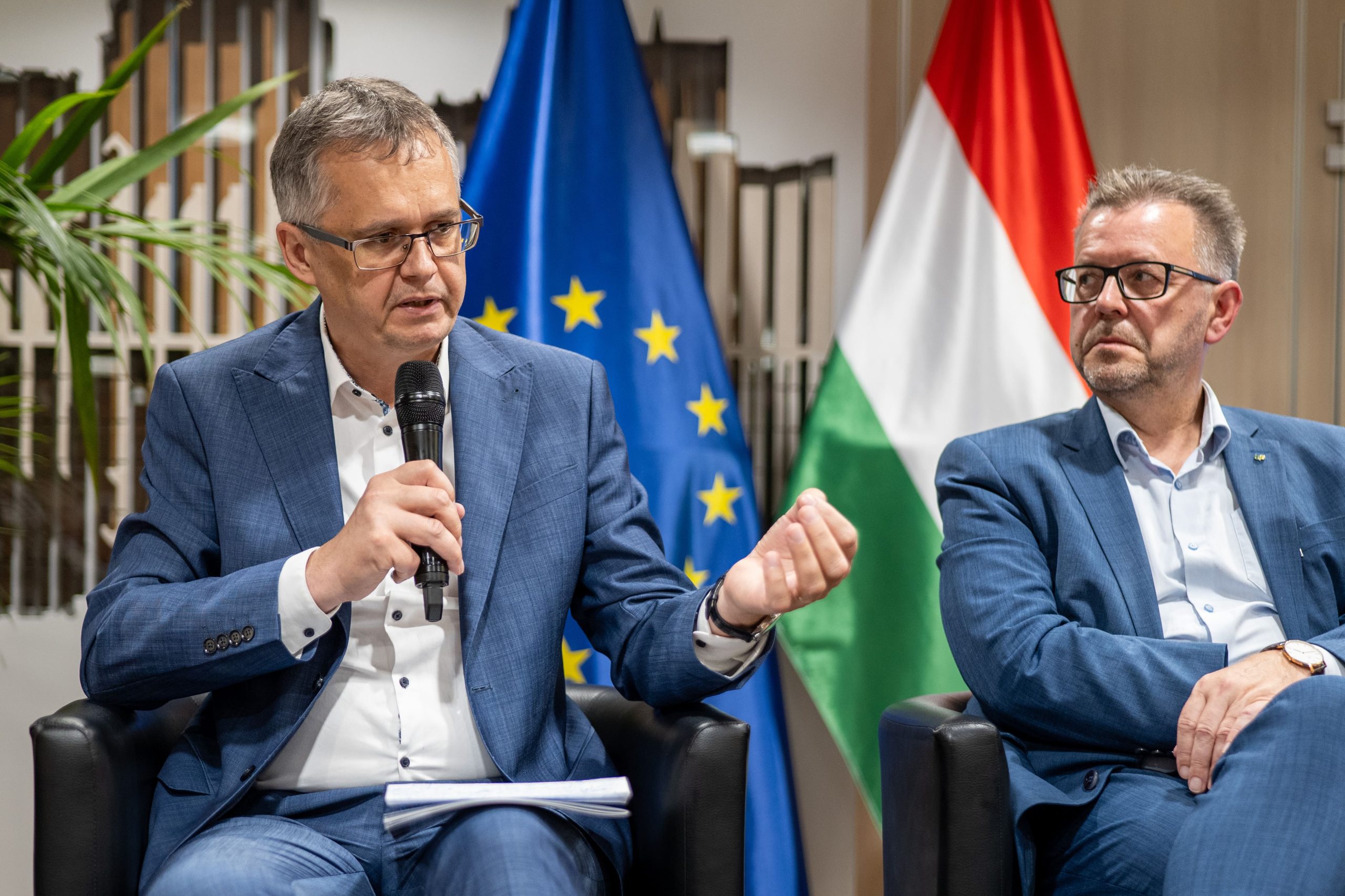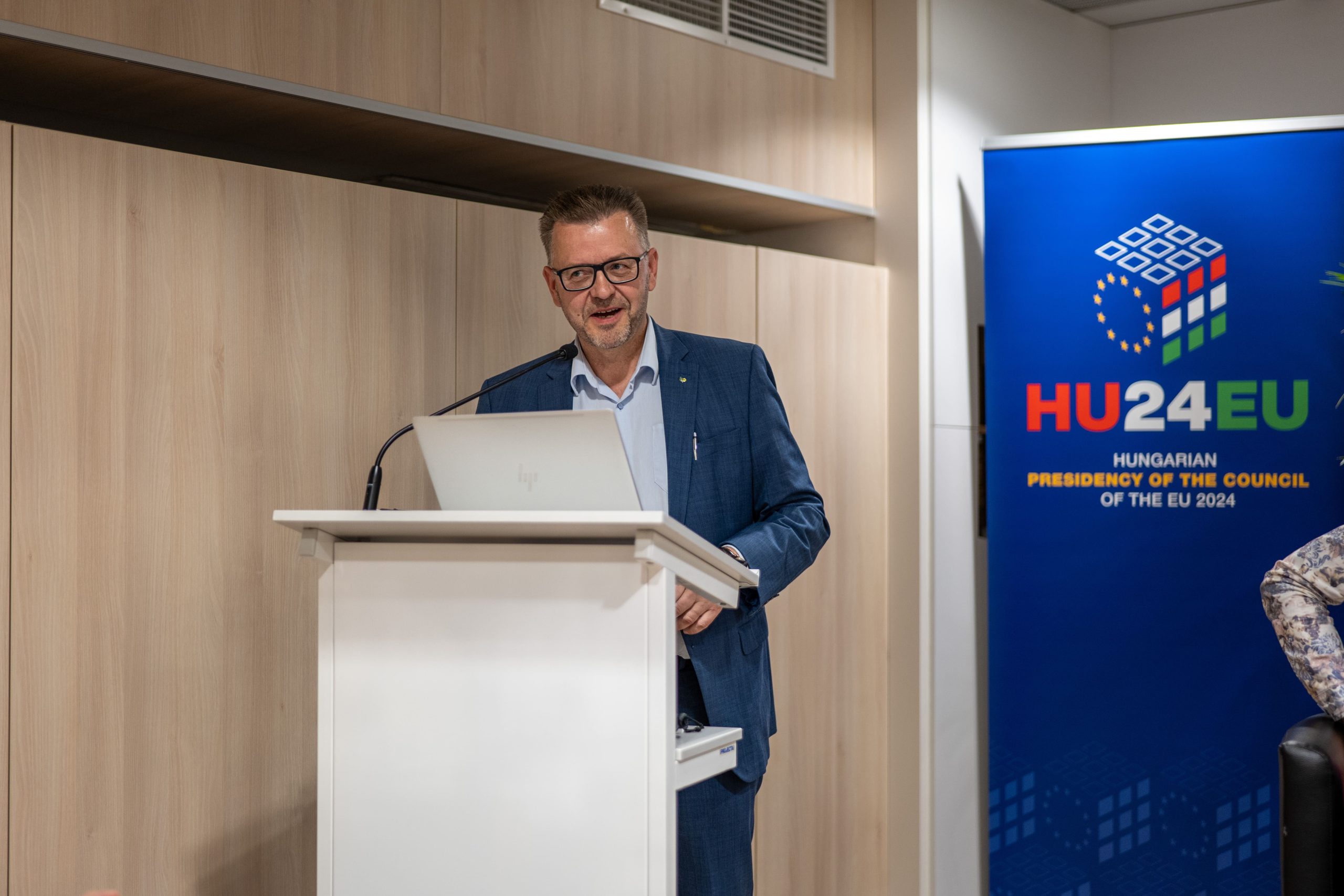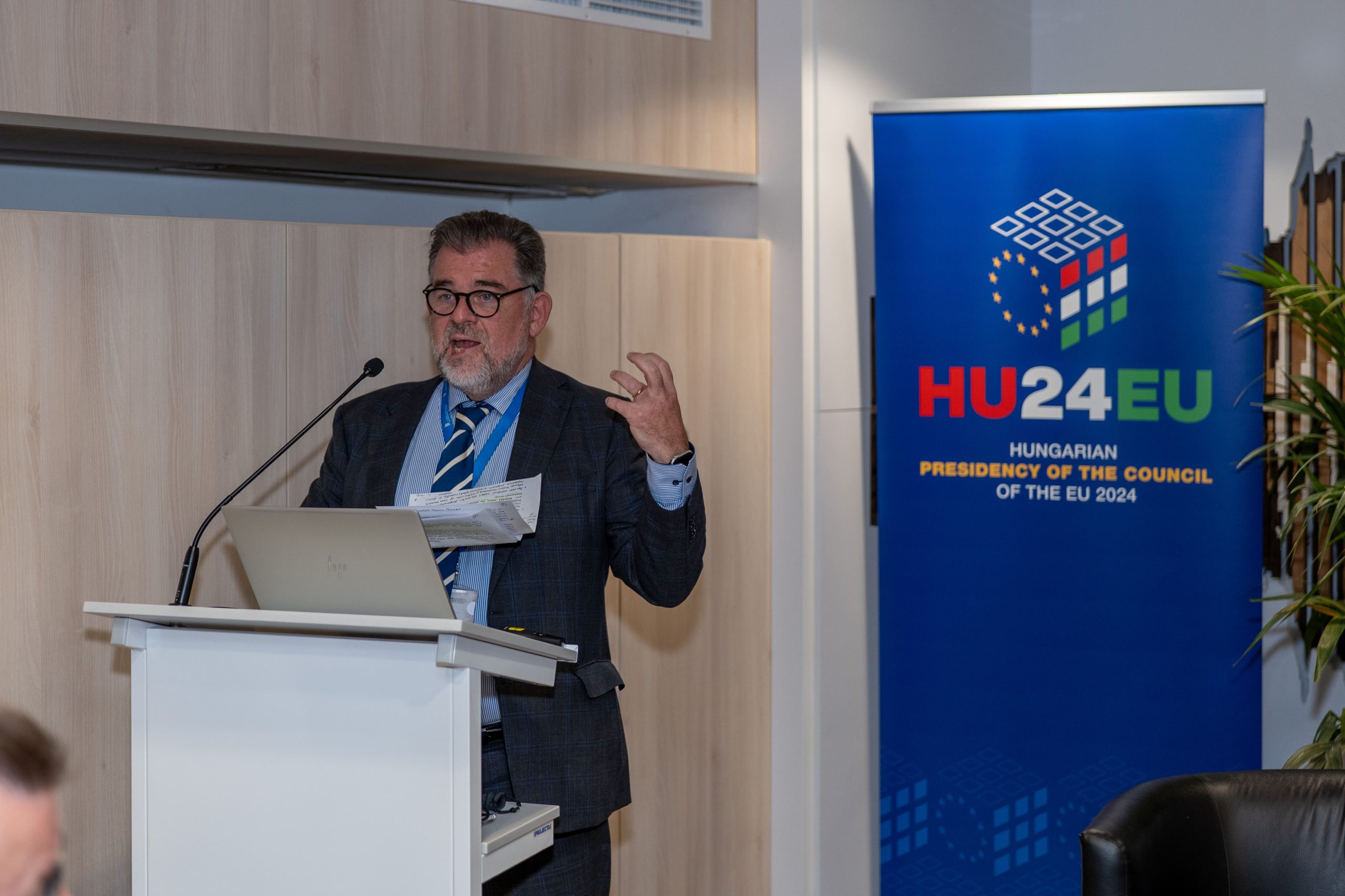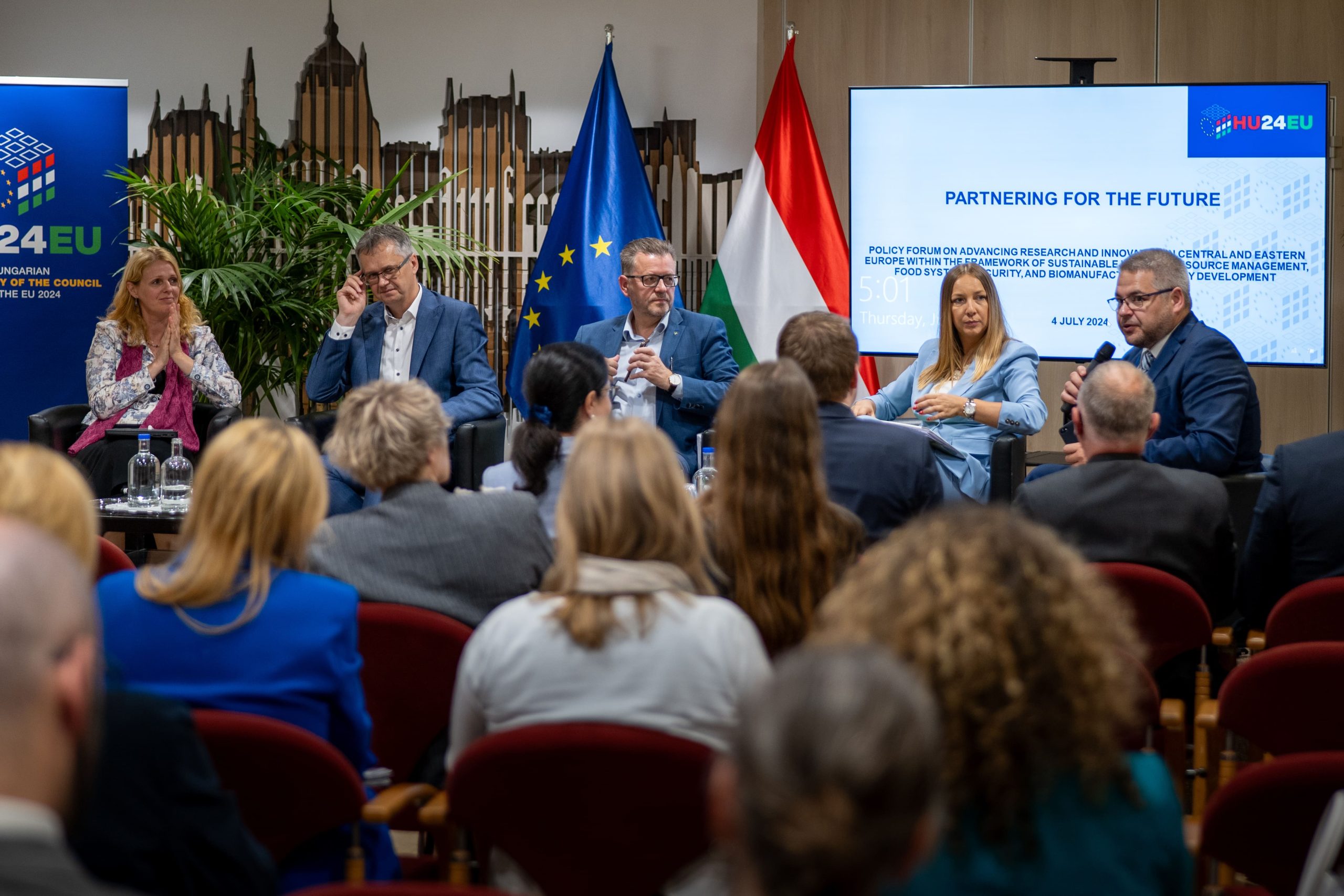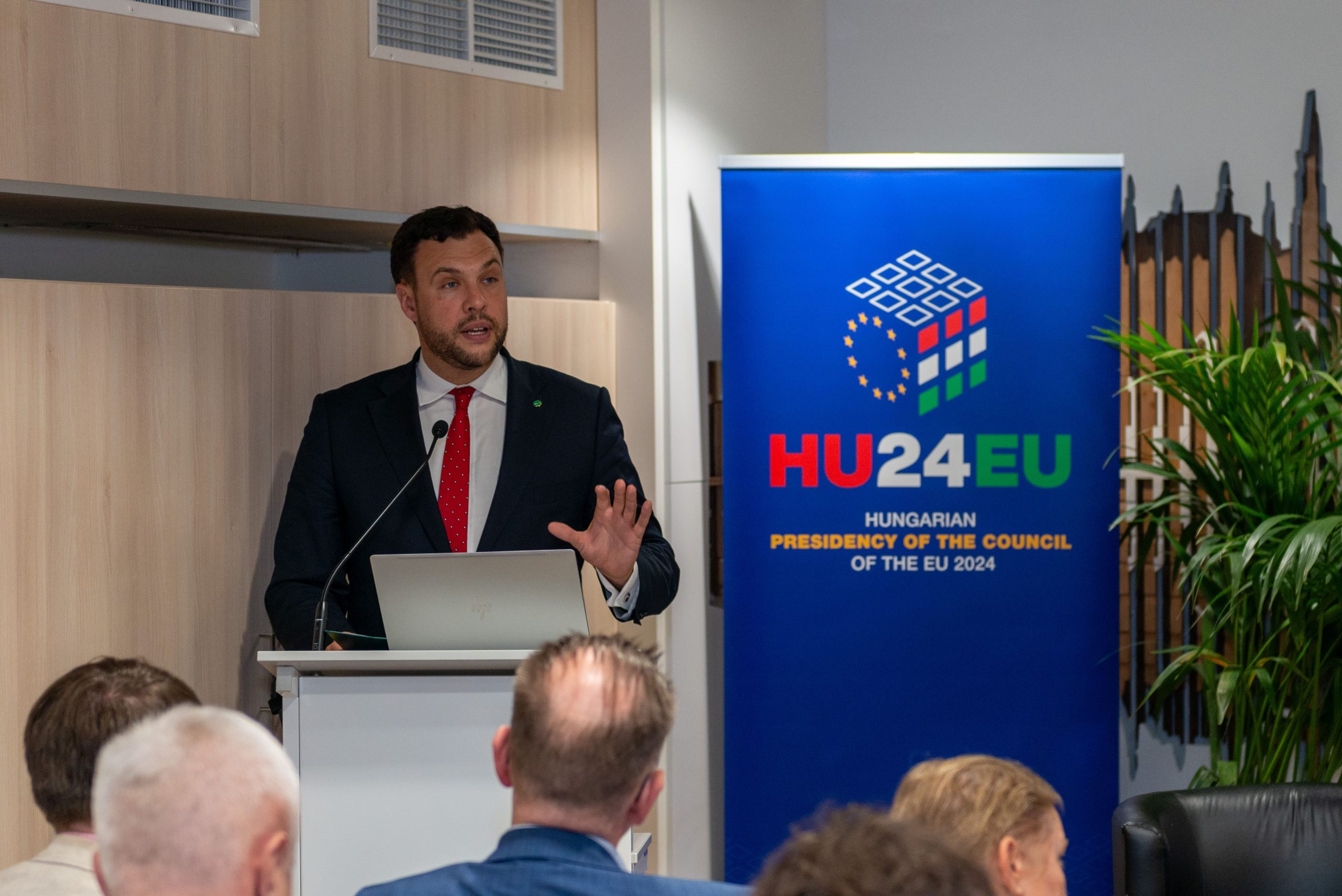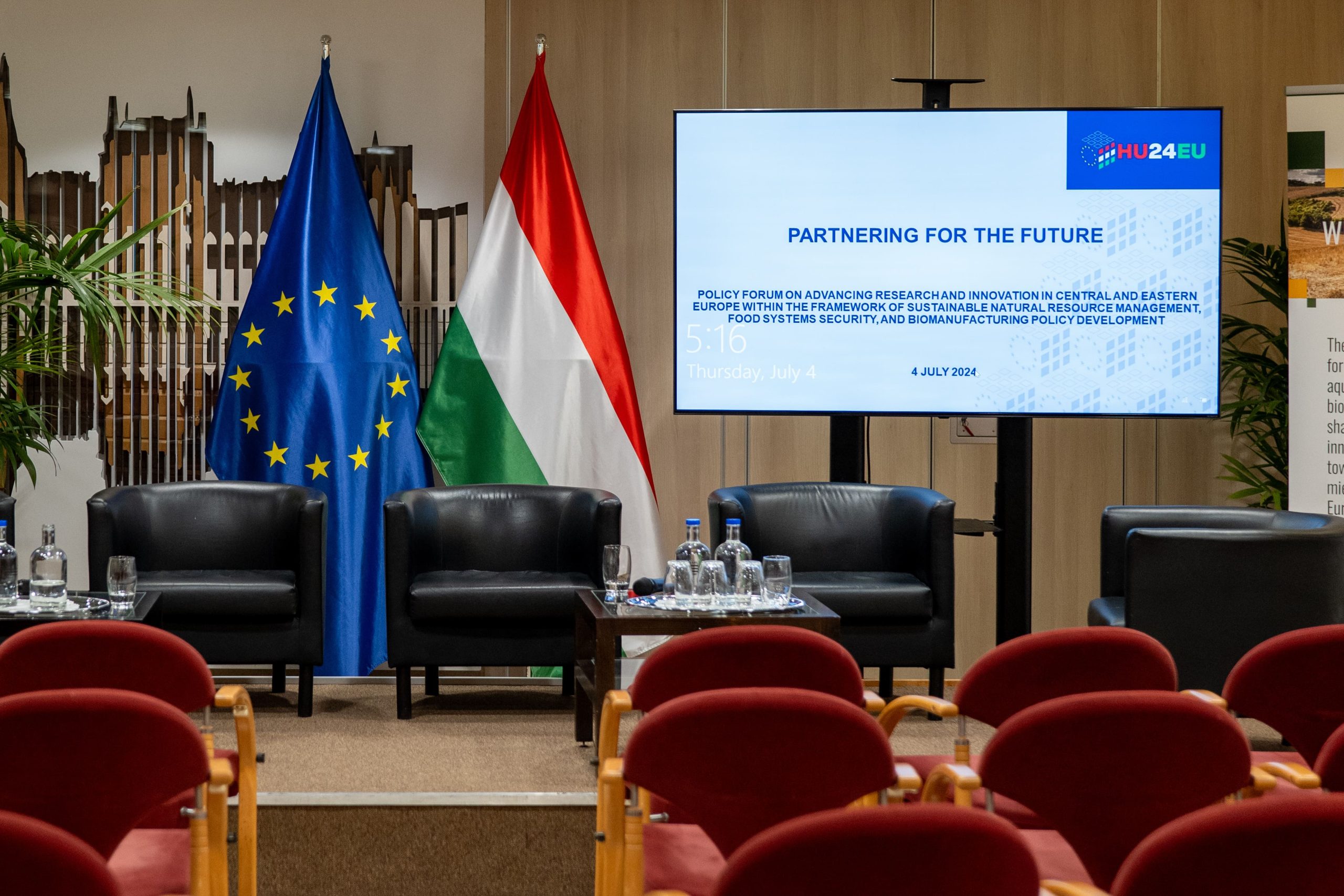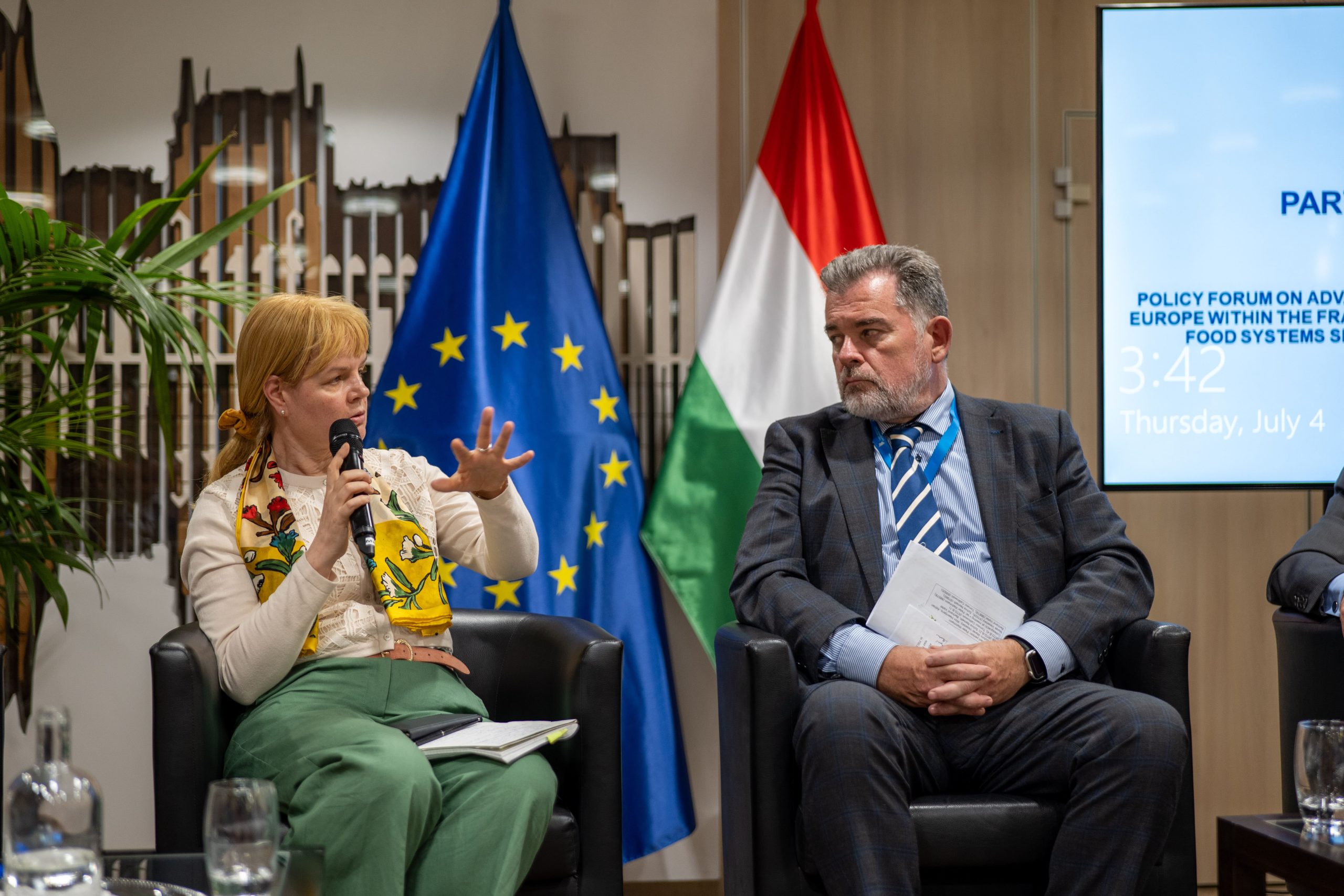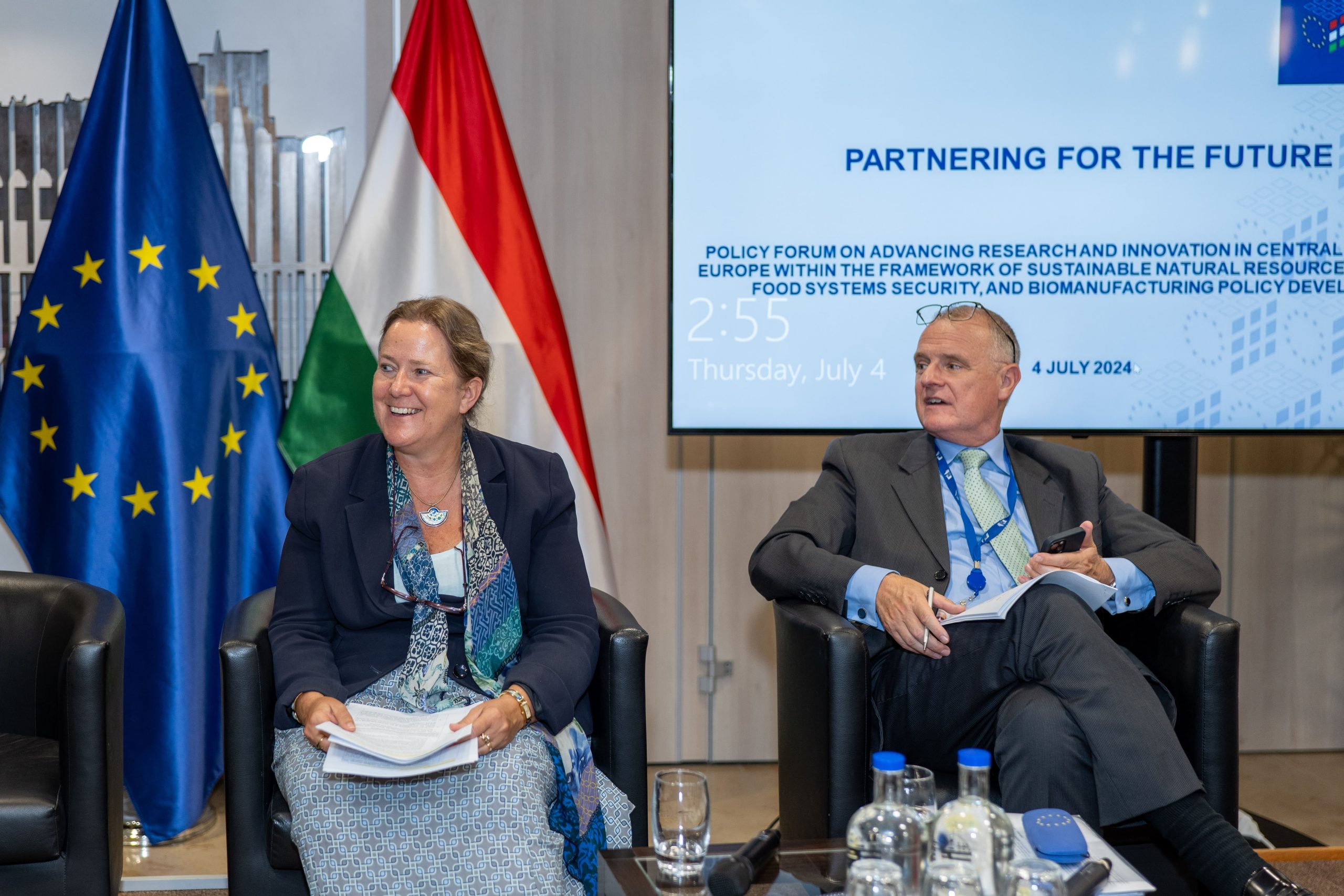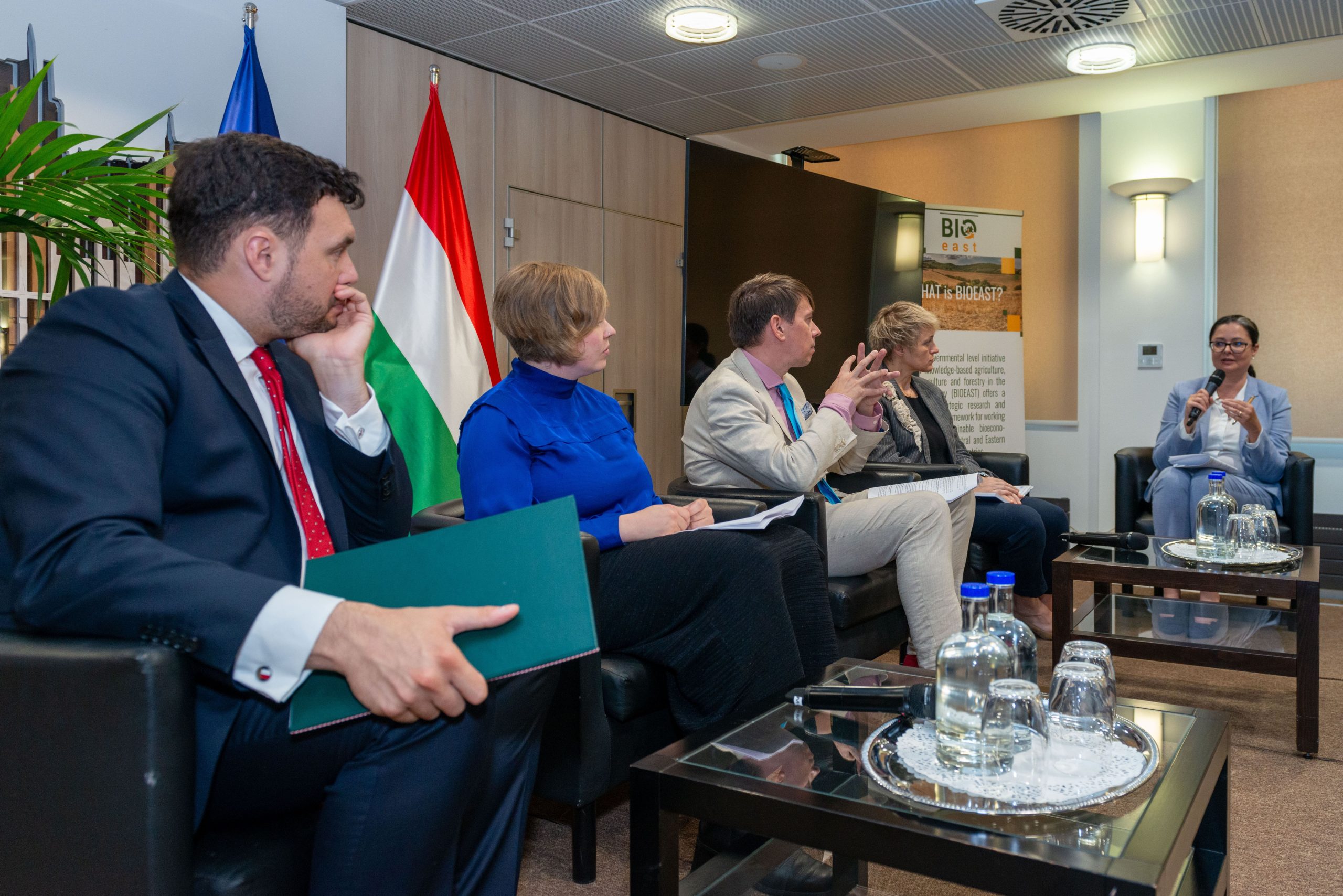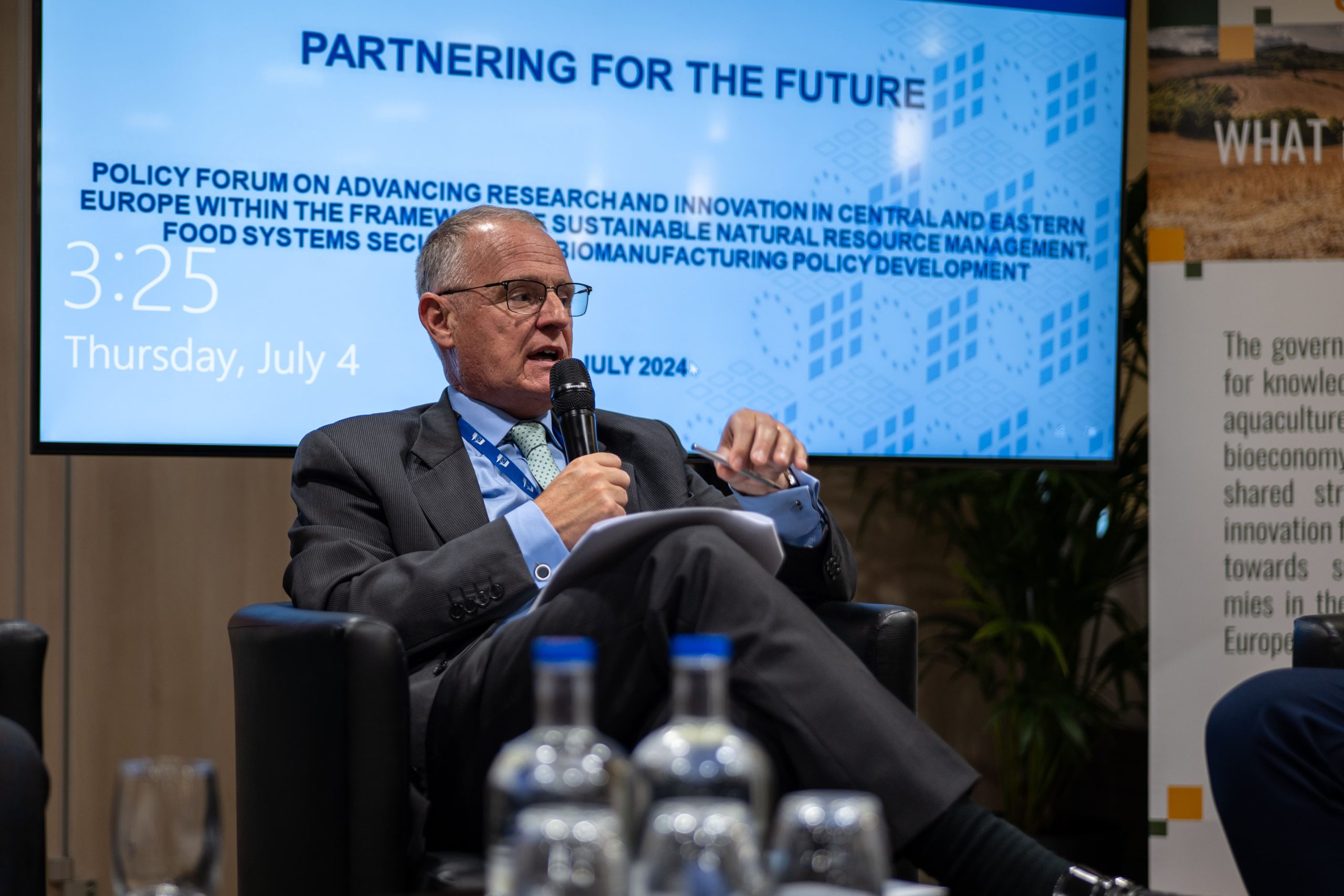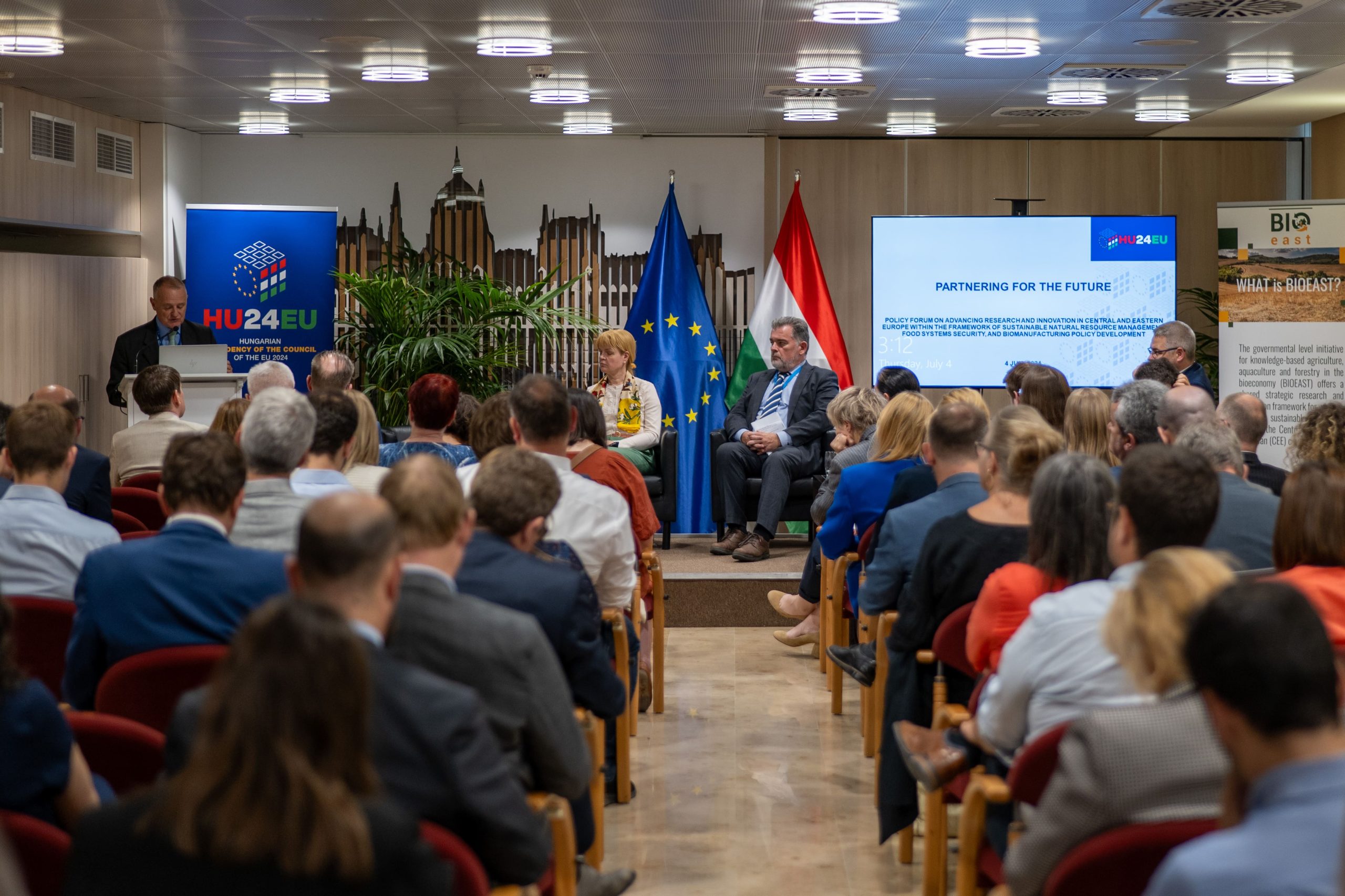4 July 2024, Brussels
On 4 July 2024, the Hungarian Presidency of the Council of the EU, in collaboration with the BIOEAST Initiative, organized a high-level policy debate focusing on the potential role of Central and Eastern Europe within the overarching framework of European Strategic Autonomy, European Food System Security, and European Biotechnology and Biomanufacturing initiatives. The primary aim was to engage all European Union Member States in a comprehensive dialogue concerning research and innovation priorities specifically tailored to the needs of Central and Eastern Europe (CEE), encompassing the Western Balkan countries, plus Ukraine and Moldova, to foster continent-wide benefits. The conference is part of a series of events linked to the Presidency priority on supporting knowledge-based and innovative agriculture. The target audience was Brussels-based envoys and EU institutions. The policy forum discussed priority areas for the macro-region, namely, four thematic areas – healthy soils, freshwater resilience, food systems security, and locally based biomanufacturing – to support the adoption of Council conclusions in the Competitiveness Council later this year.
The discussions took place in three panels: Member States’ priorities about the role Central and Eastern Europe could play in the future of European Strategic Autonomy, the European Commission’s priorities on a sustainable future from DG AGRI, RTD, and GROW, and a science-policy discussion with experts about the four thematic areas.
In the first panel, the Belgian EU Presidency presented its achievements concerning agriculture, food systems, and bioeconomy-related fields. Poland, holding the Visegrad 4 Group Presidency on behalf of the 10 BIOEAST countries, presented a Joint Declaration of the 10 Ministers of Agriculture and 10 Ministers of Research about their commitment to strengthening cooperation in research, innovation, and development by establishing a new joint research and innovation-driven partnership involving also other countries such as the Western Balkans and Eastern Partnership countries. Representatives from Estonia and Ukraine emphasized the abundance of biological resources and their potential role in the future of Europe, highlighting the need and importance to facilitate the integration of agricultural sectors and other bioeconomy sectors by adding value locally to the available biomass.
During the second panel, the European Commission’s representatives focused on ongoing initiatives, mainly the Mission on Healthy Soils and the Mission on Restoring our Ocean and Waters. They also set the scene in explaining why the bioeconomy stands out as a key success for Europe and specifically for widening and accession countries and how new initiatives such as the Commission’s Boosting Biotechnology and Biomanufacturing in the EU could play a key role in the future of the macro-region by creating opportunity for the rural areas. On the possible future partnership, the directors emphasized the good example of PRIMA and the importance of having in-depth discussion between Member States about the content and form.
The third panel focused on the discussion around a bottom-up Stakeholder Manifesto on “Sustainable Supply Chains and Strengthened Local Processing of Bioresources in Central and Eastern Europe” which has already been signed by more than 150 stakeholders. The Manifesto was spearheaded by dedicated BIOEAST Thematic Working Group members committed to catalyzing change. Recognizing the macro-region’s valuable natural assets, such as fertile soils, freshwater resources, and renewable biomass, the Manifesto stresses the need for enhancing local knowledge on environmentally friendly technologies. It emphasizes the importance of involving stakeholders from the CEE macro-region in the deployment of research, innovation, and sustainable solutions to achieve Europe’s transition towards a circular and sustainable future. Therefore, it calls for increased public investment in joint research and innovation partnership to unlock the macro-region’s potential, aiming to produce renewable biological resources and convert them sustainably into competitive value-added products.
In addition, the Berlin Process offers an opportunity to elevate the importance of food, agriculture and forestry for the Western Balkans and increase visibility of the efforts to address the policies related to food security, climate action and generation renewal of rural areas at the highest political level. In line with the Process, the Jahorina Agenda 2024 for Agriculture and Rural Development in South Eastern Europe supports the establishment of European research and innovation partnership.
The conclusions taken up by the Hungarian Presidency of the Council of the EU can be read here.
The Hungarian Presidency of the Council of the EU and the BIOEAST Initiative would like to thank the Member States providing speakers and for the European Commission’s high-level participation and valuable inputs on shaping the future of the macro-region’s bioeconomy.
Related Documents
- Conference materials: Agenda; Concept, Conclusions
